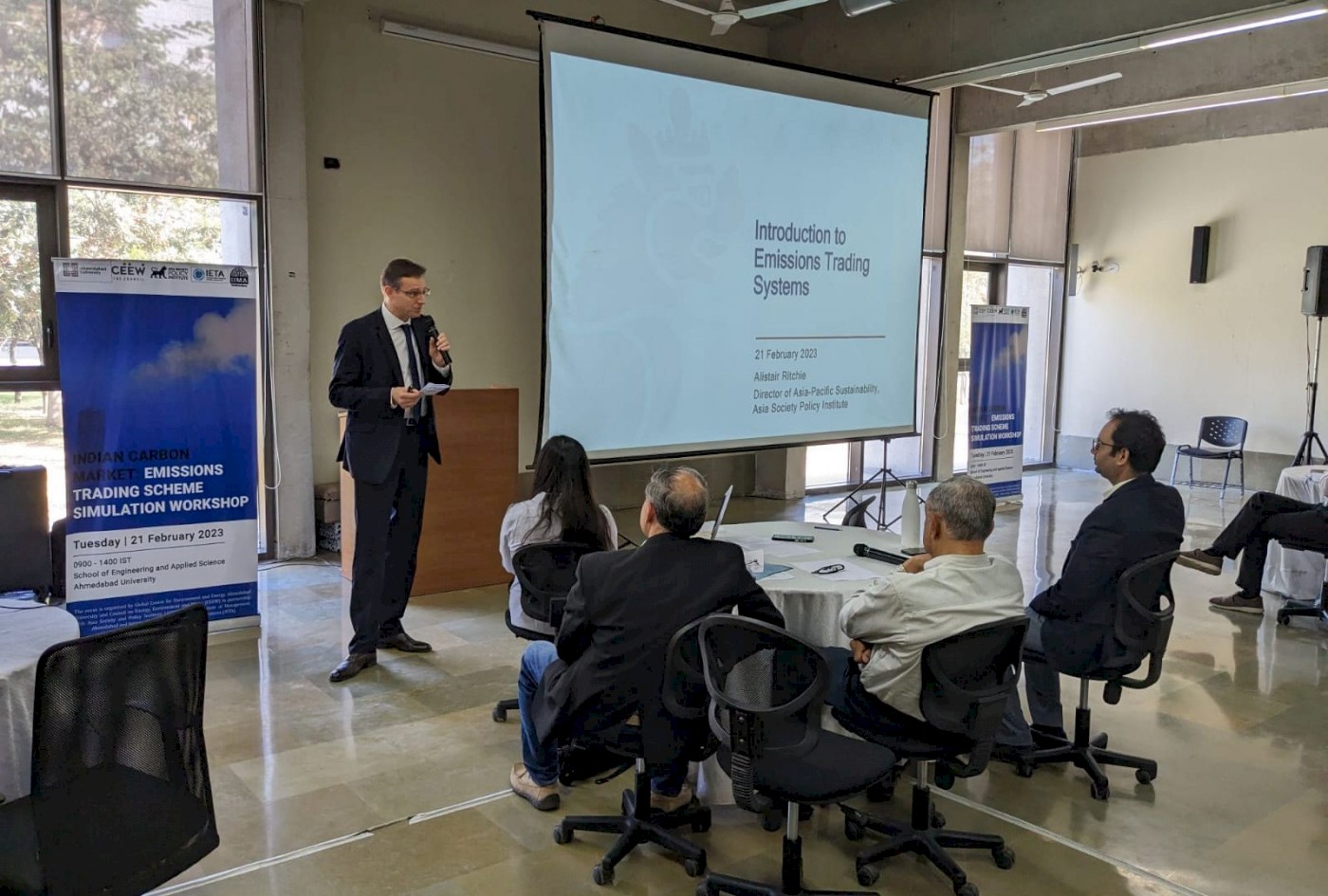Emission Trading Scheme (ETS) Simulation Workshop

The Global Centre for Environment and Energy, Ahmedabad University, and the Council on Energy, Environment and Water (CEEW) in partnership with the Asia Society and Policy Institute (ASPI), Indian Institute of Management Ahmedabad, and the International Emissions Trading Associations (IETA) hosted a first-of-its-kind ‘Indian Carbon Market: Emission Trading Scheme (ETS) Simulation workshop’ at Ahmedabad University.
The workshop, attended by industry experts from Reliance Group, Arvind Ltd, Grasim Industries, Torrent Group, ONGC, and IFFCO India, among others, facilitated the understanding, knowledge, and experience of how an ETS is designed and works, to help inform the successful development of the Indian Carbon Market (ICM) and help companies prepare competitive compliance strategies. The leading ETS simulation game CarbonSim was used to provide an intensive, experiential, and fun learning experience, complemented by presentations on ETS from leading experts and discussions of key issues related to the ICM. Vaibhav Chaturvedi, Fellow, CEEW; Alistair Ritchie, Director, Asia-Pacific Sustainability; Joshua Margolis, Former Managing Director, Environmental Defense Fund; and Minal Pathak, Associate Professor, Global Centre for Environment and Energy, Ahmedabad University, were speakers at the event.
Developed by the Bureau of Energy Efficiency, under the guidance of the Ministry of Power, and the Ministry of Environment, Forest and Climate Change, ICM is expected to enable the reduction of greenhouse gas emissions and draw India to transition towards low carbon sustainable growth and achieve its ambition of Net Zero by 2070. Following an initial voluntary carbon market phase, ICM is expected to include a national emissions trading system for sectors and entities that are already part of the Perform Achieve and Trade (PAT) scheme, including power and energy-intensive industry sectors. Obligated entities will be given a GHG emission intensity target aligned to India’s overall targets and will choose to abate and/or trade emissions allowances. There is significant momentum internationally, and especially in Asia, to implement ETSs to cost-effectively achieve ambitious GHG emission reduction targets and mitigate impacts of carbon border adjustment measures.



